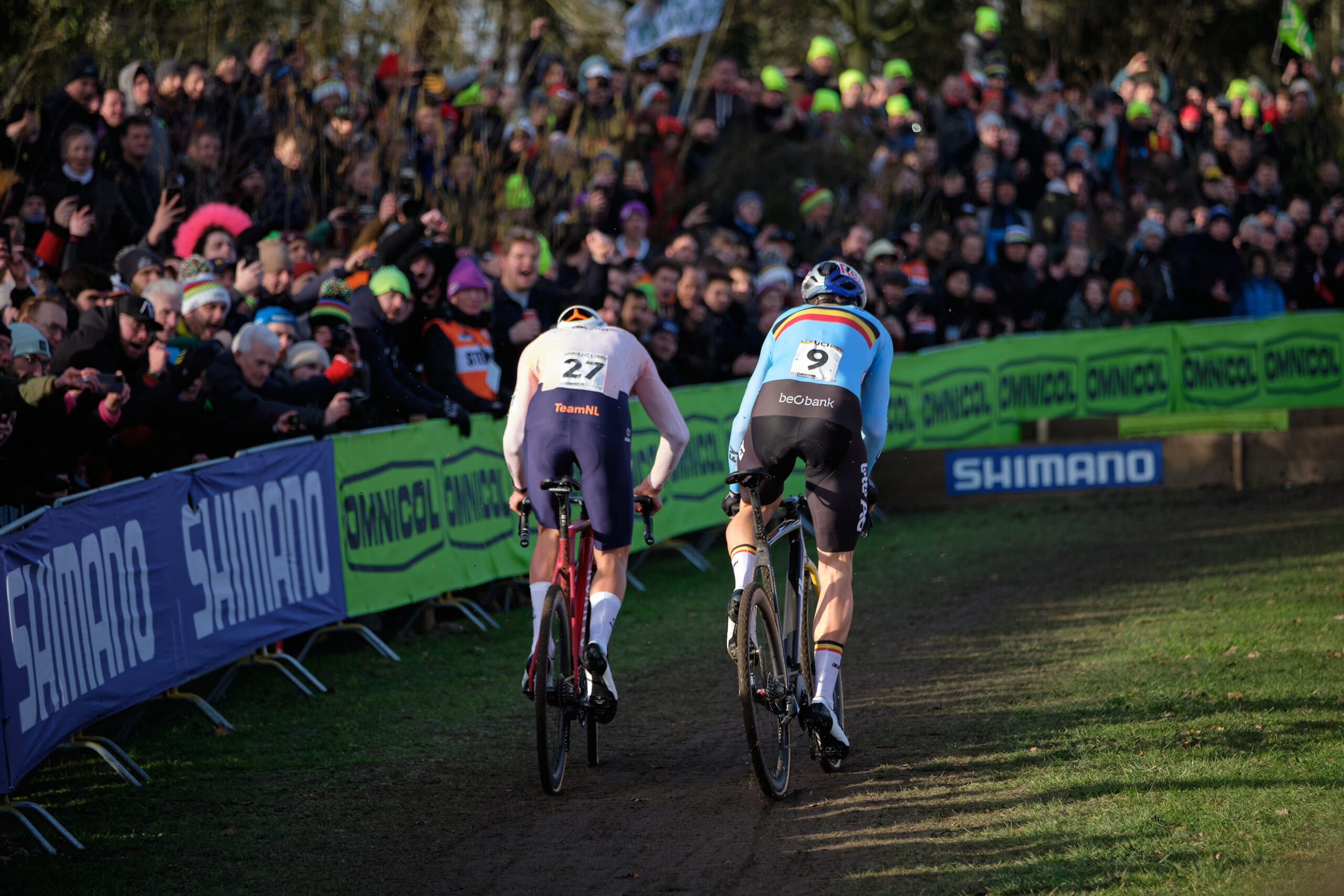A beginner’s guide to cyclocross

With the three Grand Tours all complete and the road season coming towards its conclusion, the focus of the cycling world shifts from long days in the saddle to the adrenaline-fuelled discipline known as cyclocross. This action packed way of racing has been in existence for decades; however, it has experienced a rapid growth in popularity in recent years and is now at the forefront of most cycling fans’ minds during the autumn and winter months.
In this beginner’s guide to the discipline, I’ll be taking you through the origins, rules, destinations and riders to watch if it’s your first time experiencing the thrills of cyclocross.
It will likely come as no surprise that cyclocross was born out of northern Europe, specifically France and Belgium in the early 20th century. Races would often take place between towns, however unlike in road racing the riders could cut through fields and climb fences to get to the finish. In this sense, early cyclocross races resembled a form of steeple chasing.
The first official cyclocross championships were held in France in 1902, off-road forerunner Daniel Gousseau is credited with creating the discipline. A love for racing in mud soon spread across the continent and many central European nations would hold annual National Championships by the mid-1920s. It took much longer for cyclocross to be taken seriously by the UCI; however, the inaugural World Championships were hosted in Paris in 1950. A decade later news about cyclocross spread across the Atlantic to the United States and the nation held its first National Championships in 1963.
In the 21st century, cyclocross remains primarily a European and North American affair with few other nations competing at the highest level. This is reflected in the annual cyclocross race schedule.
The basic rules of cyclocross are relatively simple when compared to those of road racing. Cyclocross races take place on a closed course, usually a couple of kilometres in length and traditionally feature a host of testing obstacles such as hills, mud pits, off-cambers and sandbanks. The riders take in a series of laps around the course, with the first to cross the finish line declared the winner.
What makes cyclocross races so thrilling is that the races are pretty short in terms of time spent on the bike, this doesn’t make it any easier though. The action is non-stop from the flag drop, riders sprint from the very start to put themselves in with a chance of victory and the smallest mistake can see you off your bike and covered in mud. There is no peloton and it’s every rider for themselves each week.
There are a number of competitions that take place during the cyclocross season. Many of these series’ are considered prestigious titles to take, however, the largest cyclocross series that takes place each season is the UCI World Cup. Featuring 14 rounds in seven countries over the course of the Autumn and Winter, there are five different categories riders can compete in ranging from elite to junior events for both male and female riders.
Each event earns competitors points that are eventually tallied up to decide who the overall victors of the World Cup are.
Don’t forget to get stuck in to the mandatory local cuisine if you do get a chance to go and watch!
While most of the races included in the elite calendar occur in Belgium and the Netherlands, there is a selection of races taking place elsewhere in 2023/24. Firstly, the UCI World Cup gets underway in Waterloo USA before events in Troyes, Dublin, Val di Sole and Benidorm.
The Benidorm leg of the series is often popular with cyclo-tourists who want to take in some sun, sea and sand in the depths of winter. The race usually features a stacked field as many top road teams hold winter training camps in the region before allowing their cyclocross stars to compete on the beaches of the Costa Blanca.
This year, the race will be the 13th round of the UCI World Cup and is set to get underway on the 21st January 2024. Make sure to book your flights and hotel if you want to make the trip as they can fill-up quickly.
There are plenty of top talents on both the male and female side of the discipline, many of whom are notable road racers too. The current male cyclocross world champion is none other than Mathieu van der Poel. The Dutchman took the title in relatively surprising fashion in Hoogerheide following a difficult season in which he was often second best to his long-term rival Wout van Aert.
For van Aert, second place wasn’t acceptable, and you can be sure that the Belgian superstar will be desperate to get the better of his adversaries this time around. Also losing out to van der Poel on the road should serve as added motivation to beat him off it.

British interest will once again be piqued by the efforts of former world champion Tom Pidcock. Often considered the third man in the triad of top cyclocross talents, Pidcock will once again want to prove his mettle against the greats.
On the female side, the current world champion also hails from the Netherlands. Jumbo – Visma starlet Fem van Empel burst onto the scene in 2022/23, taking a plethora of prestigious victories on her way to the rainbow bands. Consistently getting the better of experienced hands such as Lucinda Brand, Marianne Vos and Annemarie Worst. Her level of dominance was no mean feat, but there are few who doubt she’ll continue her hot streak this season.
If you’ve been inspired to venture into the cold of northern Europe or the sunny beach fronts of the Costa Blanca this cyclocross season, don’t forget that Yellow Jersey offer cycle travel insurance which will cover you for emergency medical expenses, trip cancellation, trip abandonment, trip curtailment, repatriation and a whole host of other benefits when cycling abroad, spectating and even racing cycle cross. For more information, please visit our website or give our customer support team a call on 0333 003 0046







